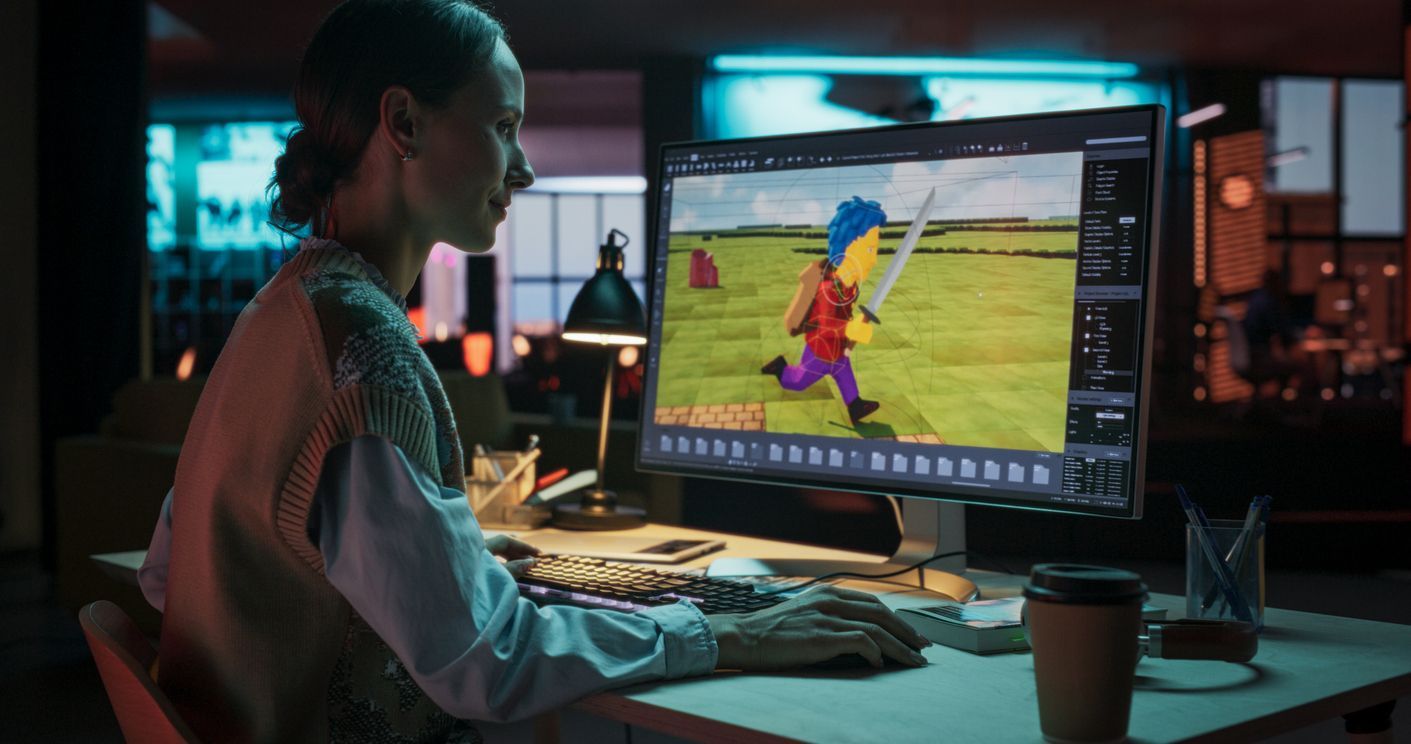This page is licensed under Creative Commons under Attribution 4.0 International. Anyone can share content from this page, with attribution and link to College MatchPoint requested.
12 Hidden Gem Colleges for Game Design and Interactive Media
Game design and interactive media are booming fields that bring together creativity, storytelling, art, and technology. For students drawn to building immersive experiences—whether through video games, virtual reality, or interactive apps—the right college program can provide hands-on training and open doors to industry opportunities. While big-name schools get much of the spotlight, there are lesser-known programs making an outsized impact in preparing students for careers in this exciting field.
Here are 12 hidden gem colleges for game design and interactive media:

Michigan State University (East Lansing, MI)
Michigan State’s GameDev@MSU community has earned national respect for combining storytelling with technical skills. Students engage in hands-on coursework and build a strong portfolio through collaborative projects.
Rochester Institute of Technology (Rochester, NY)
RIT offers a well-rounded program with paid co-op opportunities that place students directly into the gaming industry. Specializations in game arts and interactive media design make it a strong choice for students looking for flexibility.
Savannah College of Art and Design (Savannah, GA)
SCAD emphasizes the creative side of gaming, with a focus on game art and interactive design. Professional faculty and portfolio-driven projects give students industry-ready skills.
Drexel University (Philadelphia, PA)
Drexel’s co-op program integrates with its game design and production courses to give students real-world experience before graduation. Its location in Philadelphia offers opportunities in a market that is less saturated than larger hubs.
University of Central Florida (Orlando, FL)
UCF leverages its proximity to major gaming studios and entertainment companies to provide robust internships. Students learn both technical and digital media skills to prepare for careers across interactive platforms.
Laguna College of Art and Design (Laguna Beach, CA)
LCAD focuses on the artistic and creative aspects of game design. Students receive close faculty mentorship and produce portfolio-quality work in an intimate environment.
Champlain College (Burlington, VT)
Champlain has built strong industry partnerships, including connections with Ubisoft. Its game design and development program emphasizes practical skills and prepares graduates for immediate entry into the field.
DigiPen Institute of Technology (Redmond, WA)
Located in the heart of the Pacific Northwest tech corridor, DigiPen offers specialized training in technical game design. Its curriculum blends computer science with art, giving students a balanced foundation.
Cogswell College (Sunnyvale, CA)
Cogswell’s interactive media program blends game design, animation, and coding. Its Silicon Valley location connects students with tech innovators and gaming companies.
Otis College of Art and Design (Los Angeles, CA)
Otis focuses on game art and interactive media with strong ties to the entertainment and digital industries in Los Angeles. Students benefit from industry mentorship and a thriving creative community.
Stetson University (DeLand, FL)
Stetson’s smaller program offers immersive courses in game design with a personalized touch. Faculty mentorship and close-knit classes give students a strong sense of community while developing their skills.
University of Denver (Denver, CO)
Through its Emergent Digital Practices program, the University of Denver blends interactive media, design, and technology. Students engage in game design alongside broader digital arts training, preparing them for diverse career paths.
How to Prepare for a Major in Game Design or Interactive Media
If your student is considering game design, here are steps to build a strong foundation during high school:
- Take Computer Science and Digital Media Classes: Programming and design basics are valuable starting points.
- Develop Art and Design Skills: Courses in graphic design, digital art, or animation help with portfolio development.
- Build a Portfolio Early: Encourage your student to experiment with game engines like Unity or Unreal and showcase projects.
- Join Clubs or Competitions: Robotics clubs, coding camps, and game jams all provide relevant hands-on experience.
- Explore Internships or Freelance Work: Even small design projects build skills and confidence.


